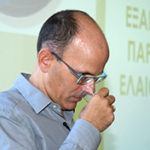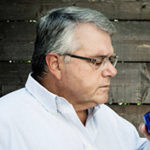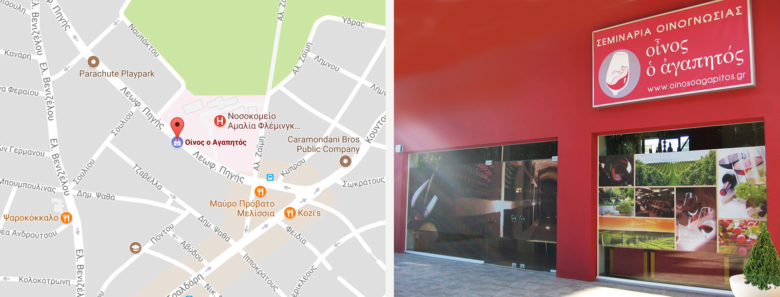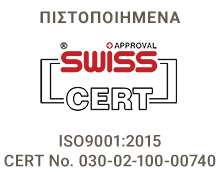Olive Oil Seminars Part B
In Brief…
Cycle B’ consists of two parts.
The first part presents all the basic knowledge and necessary steps for exportation of packaged olive oil. Basic principles of olive oil marketing are also discussed.
The second part is about sensory evaluation of olive oils: A detailed list of the reasons causing the 12 most common sensory defects in olive oils is presented. A thorough discussion of the positive traits of olive oil (fruitiness, bitterness, pungency) including ways to improve them is also part of the course. The official IOC testing method is also presented.
A tasting session follows using the IOC approved blue tasting glasses. After a presentation of 5 common defects to identify by smell, (participants can keep the samples) 12 samples of award winning, word class, prime olive oils from Greece and mainly Italy and Spain are served, tasted and their traits discussed.
Part 1
Preparation for olive oil exports (3 hours)
A company wishes to export. How ready is it?
Market research – Selection tools for target countries
Basic steps for exporting from A to Z
Trading and exports terminology
Point of sales selection
Export pricing – How prices on the shelf are determined
How to make sure you will be paid by the client
Promotion – Best trade shows and contests
Recapitulation and questions
Part 2
Sensory evaluation of olive oils (6 hours)
What is olfaction and taste?
Positive aspects: Fruitiness, Bitterness, Pungency.
Olive Oil defects and their causes
Description of the sensory evaluation process
Recognizing the most common defects – Sampling of 5 most common
12 samples of high quality olive oils tasted, evaluated and discussed
Sample testing
Demonstration on how to taste olive oil for organoleptic evaluation, how the organoleptic characteristics (defects, fruitness, bitterness, pungency) are being evaluated, using a scale of 1 to 10.
Defective olive oils
Tasting and discussion of model samples with defected oils, six of the most commonly found defects (rancid, moldy, fusty, muddy sediment, cucumber). Discussion will follow about the possible causes that created the defects by the Scientific Coordinator of Oliveoilseminars.com, Chemist Manolis Salivaras.
The purpose of tasting premium olives from other countries is to understand better their quality level so that local producers have an opportunity to know better the level of competition.
Olive Oil Tasting Seminars 2017-2018

GREECE
- KYKLOPAS – MARONIA
- MYTHOCIA OLYMPIA – KORONEIKI AND ARBEQUINA
- ELAIKOS
- VERGA ESTERRA
- ΕΙRIΝI PLOMARIOU
- HARMA
- GAIA POP SITIA
ΙΤALY
- 46 PARALLELO – CASALIVA
- FRANCI MORAIOLO
- FRANCI VILLA MAGRA
- RISVEGLIO – RAGGIOLA
- EVO
- FONTE DI FOIANO – FRANTOIO
- FONTE DI FOIANO – GRAND CRU
- LETRE COLONNE – CORATINA
- FRANTOIO ROMANO – ORTICE
- VIOLA INPRIVIO
- FRANTOI CUTRERA – TONDA IBLEA
- IN
SPAIN
- CASTILLO D CANENA – PIQUAL
- CASTILLO D CANENA – ARBEQUINA
- ZUMO – ARBEQUINA
- ZUMO – PIQUAL

Manolis Salivaras Manolis Salivaras is an experienced laboratory analyst and an expert of organoleptic evaluation of olive oil. Initially he studied Food Technology at the Technological Educational Institute of Thessaloniki and then at the Agricultural School of the University of Saskatchewan in Canada.
Read more
Stefanos Papilidis Stefanos Papilidis has graduated as an engineer from the National Technical University of Athens and also holds an M.B.A. from ALBA Graduate Business School.
Read more
Vasilis Frantzolas Vasilis Frantzolas, born in Athens, has a long family tradition in the wholesaling and retailing of olive oil. He studied as agronomist engineer and then completed his studies on civil engineering, M.Sc. (Athens) and construction management, M.Sc (USA). In 2009 he received a Master’s degree in Food Policy at City University London. His education and training in the sensory evaluation of olive oils began in 2003 and he has then attended various seminars in Greece and Italy concerning the sensory evaluation of olive oil.
Read more
Location
Seminars take place in the “Οινος ο Αγαπητός» Hall in Melissia. Address : Pigis Av. 15, 15127. The Hall is across the” Bobola” section of “Amalia Fleming” Hospital.
The hall is equipped with modern audiovisual equipment, the location is accessible by bus and allows easy car parking.

Participation Cost
B’ Cycle Seminar €180
Participants of both cycles – A ’and B’-will have a 10% discount from the total cost.
Ways of Payment
An advance payment is not required, to subscribe for the seminar. In case of cancellation a notice must be sent at least three days before the seminar takes place, by mail or phone. Otherwise 50% of the cost is due, which however can redeemed by participating in the next available seminar.
Payment is made on the spot, on the day of the seminar, either in cash or with a credit/debit card (except Diners and American Express) in POS machine.
Proof of Participation
Participants that complete both cycles A’ and B’ of training obtain a Proof of Participation certified by Swiss Approval Technische Bewertung.
Extra Benefits
Participants that complete both cycles A’ and B’ of training will receive:
A special, IOC specification, blue olive oil tasting glass
Free submission of olive oil samples for sensory evaluation
All participants in either of the cycles A’ or B’ can bring two samples of their own production olive oil for sensory evaluation (not chemical analysis) without cost.
The samples should be in well-sealed, 250-500ml, labeled bottles. The label should include: A: The name of the producer. B: The area. C:.The variety. D: The date of milling E: The name of the milling factory, if available.
The evaluation results will be sent by e-mail, within 2-3weeks.


